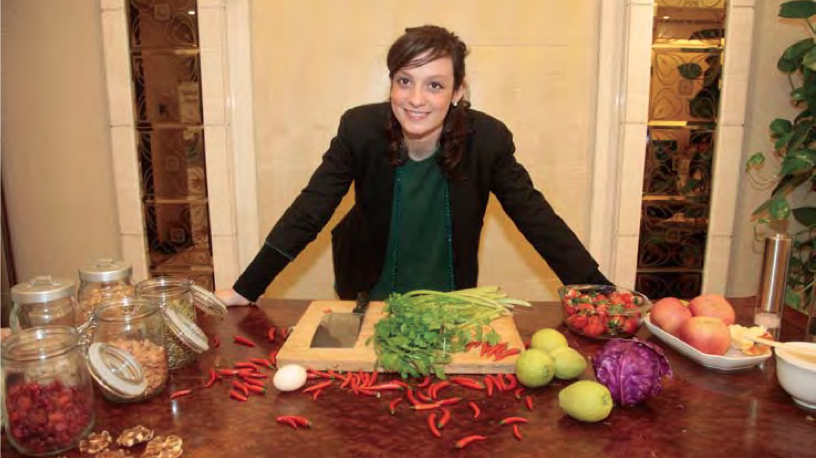Italian native Alice Giusto is a certified health coach and holistic nutrition consultant living and working in Beijing, China. Her company, Well Being Nourish, serves foreigners and locals alike in Beijing, as well as clients around the world. We caught up with her in February to find out what the state of buying not only organics, but healthful and safe food is like in the capital of the People’s Republic of China.
Organic food sales are on the rise in China, following years of scandals involving the safety of the food supply. It’s a burgeoning market, and PLMA hosts an annual private label food show in Shanghai.
Alice faces several challenges in eating well and in serving her customers, but we found that ultimately, a consumer in Beijing is able to find the goods he or she seeks, though it is obvious there is room for more products and outlets for purchasing those products there.
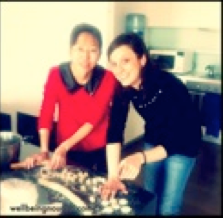
Q: Alice, how did you come into this line of work? Were you a health coach before moving to China?
A: I arrived here in China in 2006 to study Chinese, and I lived here in Beijing for six months. Before I realized it, I gained six kilos and once back home, they asked me if I was the one who had eaten the cute Alice while in China. I couldn’t believe it: I was a vegetarian, how could it be possible I gained so much, in such a short amount of time? The answer was glutamate. And a lot of jiaozi & baozi [Chinese dumplings and buns] of course.
When I came back here after [a] few months, I said to myself that couldn’t happen again. Moreover, since I had skin cancer when I was only 21, my diet changed drastically. I was treated by an amazing doctor, who taught me a lot about the healing properties of food, and I started to follow a vegan diet first (for two years) and a vegetarian diet later (still on it). I decided I could not throw [out] all my efforts like this, and I started to become more curious about what China could have to offer to me, if I wanted to stay healthy.
I found myself going around and checking every corner in order to find some good food that I could eat. Somebody said I was driven by my passion, but I like to call it survival. That passion/survival flow hasn’t left me since, and at a certain point I decided I wanted to know more about food – that’s why I got enrolled at the Institute for Integrative Nutrition-NY. I’ve been trained on more than 100 different diets and now I work on individuals (mostly women) and families who want to reach their health goals and feel more energised. In a city like Beijing, it is indeed very difficult to remain healthy. Especially for expat families, who often have a Chinese maid (ayi in Chinese) making only Chinese food and who most of the time prefers quantity over quality.
My goal is to educate my clients on how to make healthier choices for themselves and their loved ones. That’s why I developed the “Maid Healthy Cooking Program,” which is becoming quite popular.
This is my 6th year in China (cannot believe it myself!) and I hope I’m going to bring something innovative and beneficial to the local community.
Q: Alice, where do you buy your food in Beijing? Conventional Chinese supermarkets, specialty stores for foreigners, fruit stands, farmer markets, discount retailers?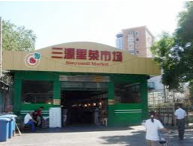
A: I have to say that since I’ve been here for six years now, I started to miss my Italian style diet after a while, so now I’m cooking a lot of western food at home, and when I feel I want some Chinese, I just go out and grab some. I like to cook and experiment a lot when I have time, so when I go shopping my list is usually divided into veggie, meat (my boyfriend needs to eat as well) and imported products. We are pretty lucky since we live in the city centre, close to Sanlitun [an area in Beijing containing many international stores and the Embassies], so this area has almost everything we need. Close to our place there is a market called Sanyuanli, pretty famous among foreigners. Here you can find veggies, fruit, fresh meat & fish, and there are also some small stores nearby where you can find imported products, such as passion fruit puree or 100% pomegranate juice. I usually go there shopping during the weekend, because I know the quality of the products is good then (a lot of local and international restaurants purchase here too) and it is also convenient: no need to run from one place to another. But it happens sometimes I need something more specific (let’s say vanilla extract for my baking) and that’s when Jenny Lou’s or April Gourmet can save your life! These chain stores are the so-called “expat saver.” Here everything cost the double of the normal stores, but you can find products from all over the world –and your muffin will have their deserved vanilla flavor.
For more info on Sanyuanli, you can check my post on it at my site.
Q: Because China does have a reputation for unsafe food supplies, I would assume it to be a challenge on some levels. Or is that a fallacy?
A: Food safety is a big issue here, due to the scandals that happened in the last years. Even though China got a new Food Safety Law back in 2009, I personally think it still has a long path to go. It is very important to say that Chinese people are also becoming more conscious about what they eat. They start asking questions and want to know more about what they purchase in the supermarket. The government is conscious of that and introduced some new regulation about food safety, which proves the interest of improving the current situation.
Because I co-lead the Slow Food Chapter here in Beijing, promoting good, fair and clean food, I can say that we have many requests to join and have attracted a lot of interest from the local population, who want to know more about the movement and the activities we are running in the city, all at no profit. I think the Slow Food Network is a good way to put in touch the many local farmers that are present in the surrounding area of Beijing with the local citizens, who otherwise would not know about this great and new way of shopping they have just to their next door.
Q: What are the farmers markets like in terms of organics – can you trust them, is there a certification process, and how do you know? I understand that old methods of farming are still common in China. Is spraying also common, however?
A: Thanks to my connection with Slow Food, I came in touch with some local farmers who do not use pesticides and grow their products organically.
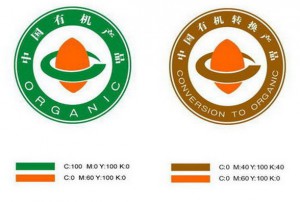
Unfortunately, since the “organic label” is very expensive and the small farmers cannot afford to get it. It is quite impossible for them to prove the “organic” method of farming they use. That’s why they are involved in the Beijing Farmer’s Market, which promotes them on a weekly basis in different areas of the city. They are also in touch with Slow Food. We help them to get connected with the citizens, organizing small events and activities there, such as creating fruit/veggie events, or Farmer’s Day. In this way people can go there, taste their food and see with their own eyes what these farmers really use, or don’t use, in growing their foods. And of course, then start purchasing from them. Many of these farmers have their own “club,” so you are required to buy a six month to one year membership card, and you get a weekly delivery of products to your home. These farmers usually run a small family business, and most of the time they cannot afford full time employees, so they rely on summer workers. Life is hard for them, since they are not well structured and even delivery can be difficult to deal with, if the food purchase is not worthy in terms of order size, because farms are really far from city centre.
This is also the method used by the few CSAs (Community Supported Agriculture) who have arisen in the last two years. It is asked that the customer share the farming risks with the farmer, by making a payment in advance. I need to say both of these new farming ventures are getting a warm welcome among citizens, both foreigners, and more and more, the Chinese.
Recently I‘ve been approached by some farmers who have achieved the official organic label . Even if I do not check their farm in person, I realize they have a big structure behind them. One such farm delivers products every day from Yunnan province, and has a sales force of 40 people only in Beijing! It is therefore easier for them to purchase the officially recognized organic label than it is for a single farmer. For this reason, their products are even more expensive that the ones sold by the normal farmers.
Q: How do you know for sure what you are buying? Do you have a relationship with any of the farmers you buy food from? How can you know what you will get?
A: It is simple: you cannot. Unless you know the farmer – and the farm… where you get the food from.
I am lucky because, thanks to Slow Food, I know many farmers and I can visit them and see how they grow their product, so I am sure that if I buy from them, I’ll get good food.
And that’s the whole point of Slow Food here: building trust. Unfortunately, in a country like this, where corruption is still very common on every level of the society, we still have a lot of work to do. And even if I see every day a new farm that calls itself “organic” I still prefer to check with my eyes before believing everything they tell me. It is very sad, but since Chinese are very good business people, and they have learned just how much money you can make in the organic market, I cannot guarantee they will always follow the rules.
Q: What do you look for at each of the stores you shop in? For example, produce in one or two places, dairy in another place, meat in another? Since you don’t eat dairy or meat, where would you go if you did?
A: As I mentioned, when I go for the veggies, I get some from the farmers I know, or from a local market close to my house. As for the imported food, I always go to April Gourmet/Jenny’s Lou, who are focused on international stuff. For meat, my boyfriend relies on a German store who raise their own animals, in Shandong province, according to EU [European Union] standards: very costly, but worth every cent, he says. It is called Schindler.
Q: Is there a certification symbol in China for organics on packaged goods? What about declaration of GMO ingredients on packaged goods? I did read China has laws stating GMO (genetically modified) foods must be labelled as such. We don’t even have that law in the US, sadly.
A: Yes, there is a organic certification [in green, see previous page], and also a “conversion to organic” [in brown] label. I personally run into the green one may times, but never into the brown one. You can find these labelled products in many high-end supermarkets, located mostly in the residential area, where a lot of families live, and the products are quite costly… especially fruit and vegetables. I’ve never seen the GMO label on food – but I’ll look for it!
Q: What is the general availability of processed organic foods (frozen, cheese, canned, boxed cereals, flours, cookies, snack bars, nut milks, soups, spices, refrigerated items, etc.) Are processed foods easily found in the better supermarkets and local places like Jenny Lou’s? Say a mother wants to feed her child organic oat cereal from a box with organic almond milk and include organic snack chips in his bag lunch for school: are those kinds of items available? Organic applesauce?
A: From what I see during my everyday shopping and my research activity, organic products are still at the start point, so it is not possible to have a kid “100% grown organically”. You can now find a quite limited amount of organic products, and they include mostly fresh vegetables, some fruit, one brand of milk and yogurt and a few fresh juices. What consumers do now – if they want good quality products- is looking for imported products. Let’s say I’m a mum who wants to grow my kids with good food, I’ll look for Swiss milk, US (fortified or not) snacks, multivitamin juices from Australia, Canadian maple syrup, and so on. And I’ll purchase fresh organic vegetables, some meat (chicken and eggs, and goose mostly – since they have a lower management cost than pigs and beefs) and fruit from the farms that have them, or from the big chains where I can find these foods.
I am not sure if you know it, but: Walmart is one of the first who started purchasing from farmers fresh vegetables and got “organic” labelled food in the Chinese stores – making a lot of money out of it!
Q: Walmart sells organics in the U.S. as well. Are organic processed foods available labeled in Chinese for Chinese consumers, or only via import and in English at the specialty/foreign markets?
A: From my personal experience, I would say that when I find an organic product, 90% of the time I find both Chinese and English language on it. Anyway, the places where you can find organic labelled food now are very limited: or the big chains (like Walmart) or the imported foods’ stores and markets – that’s why you also find English language on the food products.
Q: Are American brands accepted in China?
A: I personally don’t buy a lot of them, but from what I see in the stores (always talking about the imported goods stores of course), every food category is well represented by some US brands. I notice an increased number of Chinese customers in the stores where before only foreigners used to go; this means they are starting to buy imported food too.
Originally by Dena Rash, Source: March 2013 Newsletter from Organic Foods International LLC

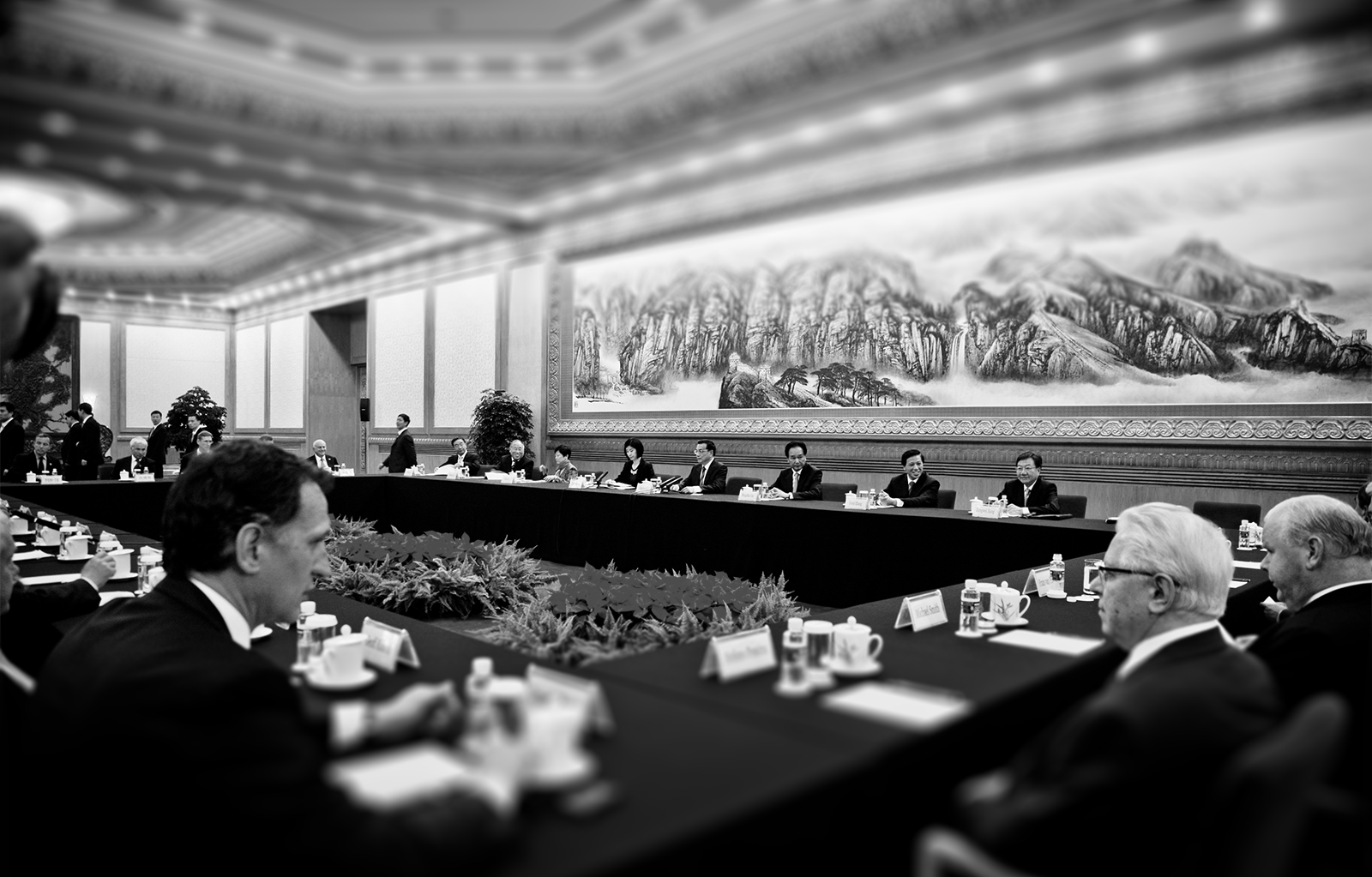




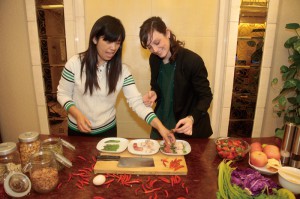 Nutritionist Alice Giusto shows to families how to have their ayis cook the healthy food at home.
Nutritionist Alice Giusto shows to families how to have their ayis cook the healthy food at home.